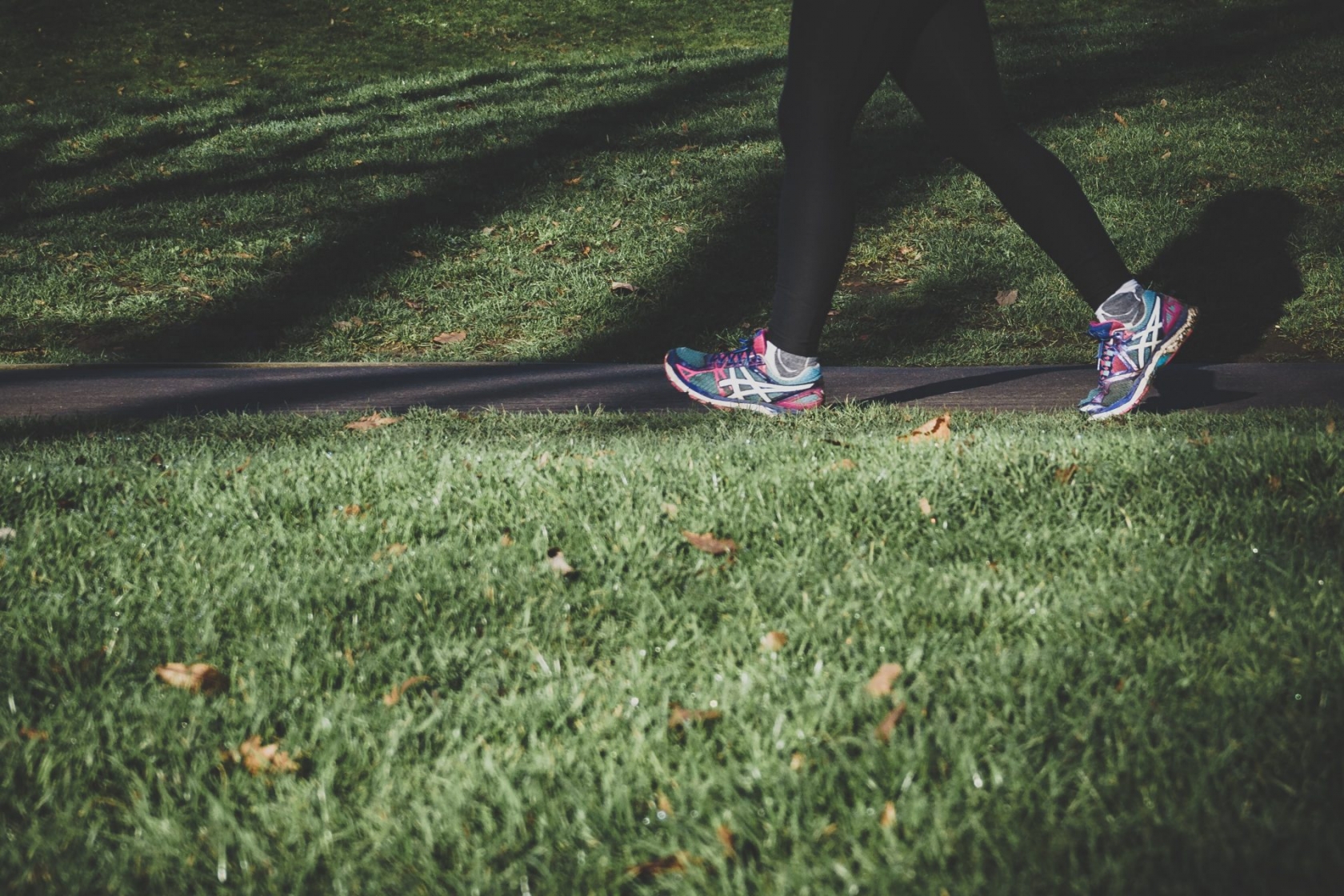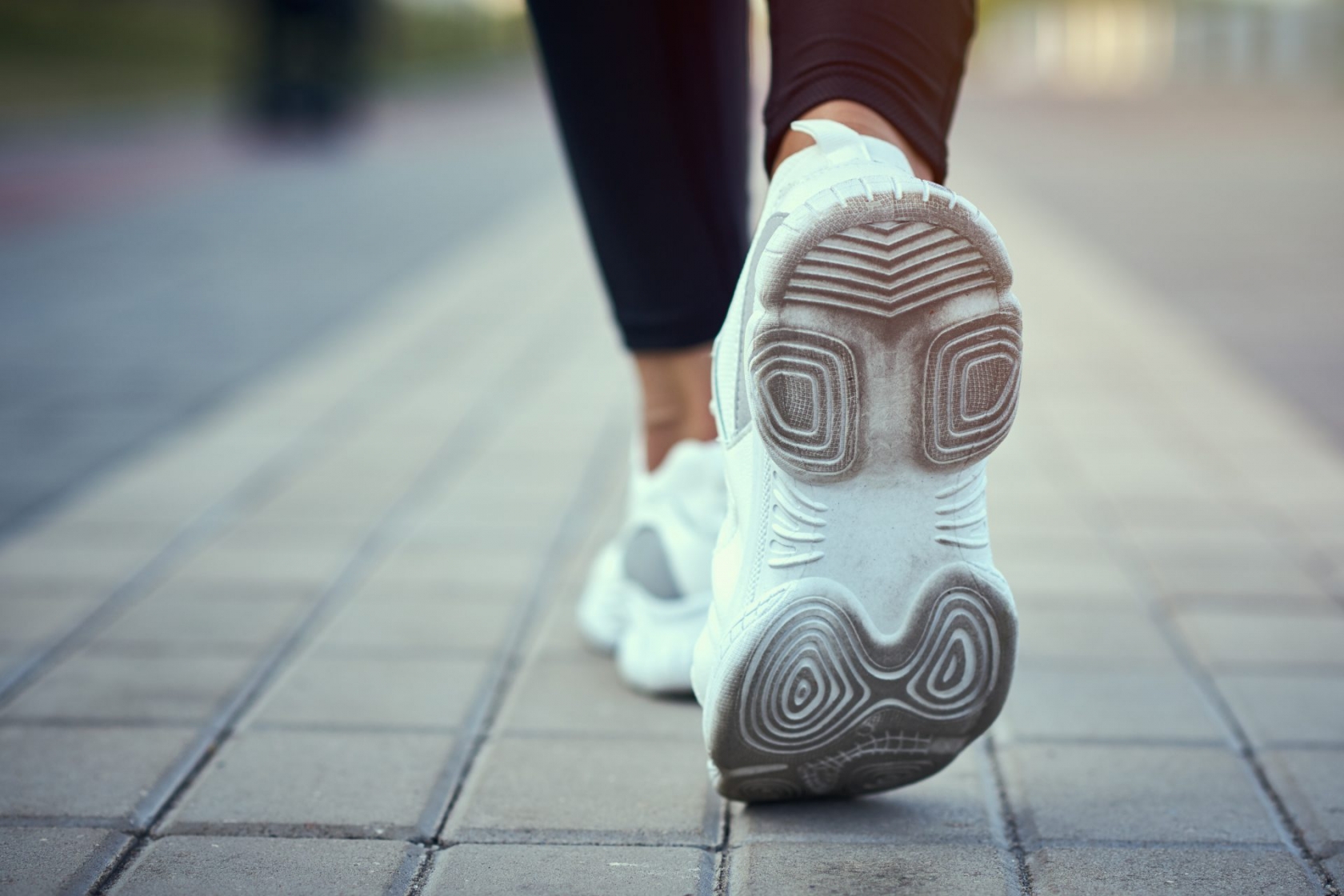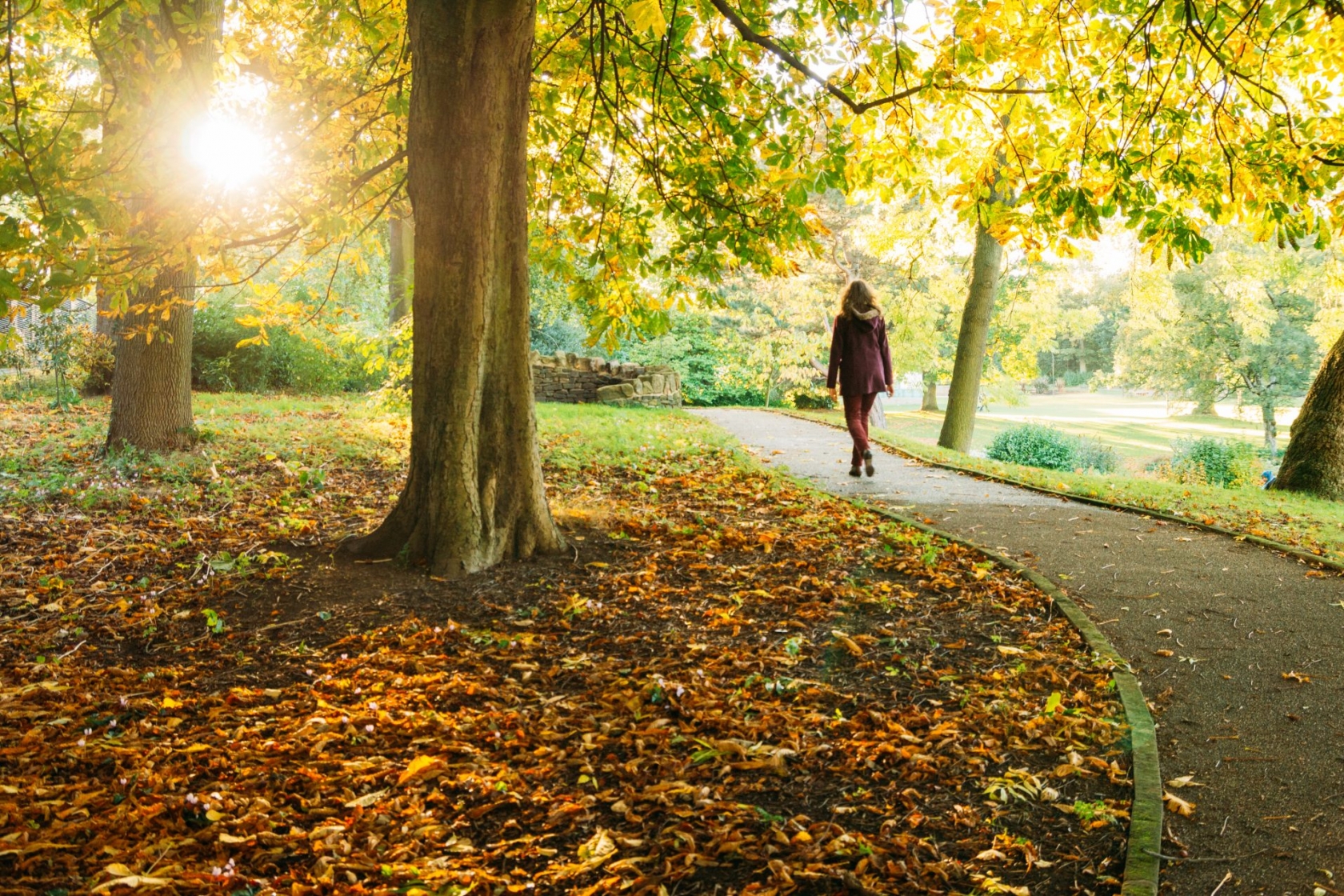Looking for an easy way to boost your mental and physical health while working from home? Going for a morning walk could be the answer you’re looking for – here’s why.
In 2020, we’ve officially fallen in love with walking.
Whether we’re setting off for a lunchtime stroll, walking with friends in the park (at a distance, of course) or giving mindful hiking a go, there’s something about the simple act of putting one foot in front of the other that has made life during the coronavirus pandemic that little bit easier.
However, as the nights have drawn in and we’ve found ourselves finishing work in the dark, finding time in the day to get out for our daily ramble has become increasingly difficult – especially when the weather has been less than inviting.
You may also like
Benefits of walking: fitness trainers tell us whether walking every day is really enough exercise
At a time when many people are finding working from home to be particularly challenging for their mental health, the fact that so many of us are struggling to get out the house – even if it is just for a walk around the block – is particularly concerning. So, what can we do about it?
Although heading outside early in the morning may not sound particularly appealing, going for a walk before work might just be the answer to our current struggles. Not only is getting outside before we sit down at our desks a great way to kick things off in the morning, but it also sets us up for better mental health and wellbeing throughout our working day.
You don’t need to walk for hours to reap the benefits of an early morning stroll, either – even just 10-15 minutes of fast-paced walking can make all the difference, explains Dr Becky Spelman, a psychologist and clinical director at The Private Therapy Clinic.
Even a brief, brisk walk can be enough to boost someone’s energy
“There’s no particular time that people need to go for a walk for it to be beneficial, because even a brief, brisk walk can be enough to boost someone’s energy,” she says. “It tends to be brisk exercise that boosts people’s mood, so just make sure that the pace is quite a decent pace.
Want to learn more about how walking before work can benefit your mental, physical and emotional health? From improving focus to helping alleviate symptoms of seasonal affective disorder, here’s all the reasons why going for an early morning walk is so good for you – and why it’s time to make one part of your routine.
1.It boosts energy
If you’ve found yourself feeling tired all the time while working from home, a morning walk could be the answer you’ve been looking for.
Studies have repeatedly shown that walking in the morning can boost energy levels for the rest of the day, especially when done outdoors – one study into the benefits of indoor vs outdoor exercise found that those who walked outdoors for 20 minutes experienced more vitality and energy than those who walked indoors.
Indeed, as Emma Obayuvana, member of the Strong Women collective, previously told Stylist, exercising in the morning can give you that extra boost to get things done. “It can mentally set you up for the day, helping you feel more organised, refreshed and energised,” she explained.
Getting outside in the morning – especially during winter – can also be an effective way to stave off ‘winter fatigue’ because the daylight exposure tells your body clock it’s time to start the day.

2.It helps us to avoid SAD
Getting outside in the winter is particularly important for those people who deal with seasonal affective disorder, or SAD, so making a walk part of your morning routine can be a great way to establish this healthy habit.
Although the exact cause of SAD is not understood, according to the NHS, the main theory is that the lack of sunlight exposure we experience during the autumn and winter months might stop a part of the brain called the hypothalamus working properly. Therefore, by increasing the amount of sunlight we’re exposed to by going for a daily walk, we help to reduce our risk of developing SAD.
Making a walk part of your daily routine can also help to manage one of the main symptoms of SAD – low mood.
You may also like
Working from home during winter could make your SAD worse – here’s how to handle it
As Pablo Vandenabeele, clinical director for mental health at Bupa UK, previously told Stylist: “If the lack of daylight is affecting your mood, try to make the most of the hours when it’s light and get outside; even a cloudy day will provide your body with the light it’s craving.”
He continued: “Not only is it a refreshing break away from your digital devices, but it can also help improve a low mood.”
3.It boosts mood
As we’ve already pointed out, not only is walking a great way to boost your energy levels, it can also boost your mood and leave you feeling more positive, too.
“Exercising influences the neurotransmitters dopamine and serotonin which are the feel-good neurotransmitters, so this makes us feel better and really lifts our mood,” explains Dr Spelman.
Doing any form of exercise in the morning is something that will boost our mood and help us for the rest of the day
“In this way, doing any form of exercise in the morning is something that will boost our mood and will really help us for the rest of the day.”
She continues: “Going for a walk is particularly beneficial because we get to be close to nature. This is even true for people who live in cities because they’re still seeing trees and greenery, even in very built-up areas.”
While exercise on its own can be beneficial for our mood, doing that exercise outside has been proven to offer a unique range of benefits, such as heightened self-esteem and lower stress levels.
4.It increases focus
Research published by Harvard Medical School in 2016 concluded that just 20-30 minutes of aerobic exercise – aka, a brisk walk – before undertaking a mental task may quicken reaction time and sharpen decision making.
With this in mind, going for a brisk walk before work could help you to get the most out of your working day and tackle any problems which present themselves.

5.It promotes mindfulness
Instead of spending your morning scrolling on your phone in bed or watching TV, going for a walk gives your mind the space it needs to focus on the here and now and enter a more mindful state – something which has been proven to benefit mental health.
“Going for a walk in the morning before work is an opportunity for us to be very mindful in the present moment, which really sets us up for the day,” Dr Spelman explains.
You may also like
Mindfulness techniques: 5 easy ways to make your WFH routine more mindful
“By walking, we’re not focusing straight on the task at hand, but we’re also not letting our mind wander to places such as unhelpful thoughts about the future, which can lead to anxiety, or unhelpful thoughts about the past, which can lead to depression.”
If you want to make the most of your morning walk, consider setting out without headphones. As Stylist’s Kayleigh Dray found, practising mindful walking or hiking is a great way to reconnect with yourself and feel more in tune with your body – what more could you want from your morning routine?
6.It mimics a commute
By setting out for a walk before work, we help to create a divide between our ‘work’ and ‘home’ lives – something that is even more important than ever while we’re working from home.
As Stylist’s business development director in commerce Hannah Coorg previously explained, embarking on a so-called ‘fake commute’ has been a great way for her to break the cycle of working from home life.
I use [my morning walk] to come into my own and settle before work
“It’s that sense of change of scenery,” she said. “I know people do just go for walks in the morning, but I thought ‘what if I fully think about getting ready for work and walk for about 45 minutes to an hour?’ I even pack my bag like I’m leaving for the day!”
She continued: “In a weird way it puts me in a different frame of mind. I do everything I normally do on my commute – I listen to a playlist, and I use that time to come into my own and settle before work.”

7.It improves sleep
If you’ve been finding it hard to get to sleep while working from home, getting outside soon after you wake up could be the answer you’ve been looking for.
Indeed, a 2017 study published in the journal Sleep Health found that people who were exposed to greater amounts of light during the daylight hours – between 8am and noon – fell asleep quicker in the evening and had fewer sleep disturbances compared to those who weren’t exposed to light.
This is because exposure to light – especially in the morning – helps to regulate our circadian rhythm (the body’s natural 24-hour cycle), which means our hormone levels are primed to help us achieve a good night’s sleep.
You may also like
How to sleep well during the darker months, according to an expert
As Hope Bastine, psychologist and resident sleep expert at the sleep tech firm SIMBA, previously told Stylist: “If you’re looking to achieve a better night’s sleep, getting the right amount of sunlight during the day is just as critical as the amount of darkness needed in your bedroom at night.”
If working during the pandemic is taking its toll on your mental health, you’re not alone. From the isolation of being separated from colleagues and the stress of relying on technology to the threat of redundancy and the anxiety of applying for a new job, there are a number of reasons why you might find this time particularly challenging.
So, what can we do about it? We’ve got a plan.
Our new Work It Out campaign, supported by Mind, aims to give you the tools and resources you need to take care of your mental health while you’re stuck at home. From completing your Work 5 A Day to dealing with issues including anxiety, loneliness and stress, we’ll be exploring all aspects of wellbeing during this strange time.
For more information, including how to complete your Work 5 A Day, you can check out our guide to getting started.
Images: Getty/Unsplash
Source: Read Full Article
